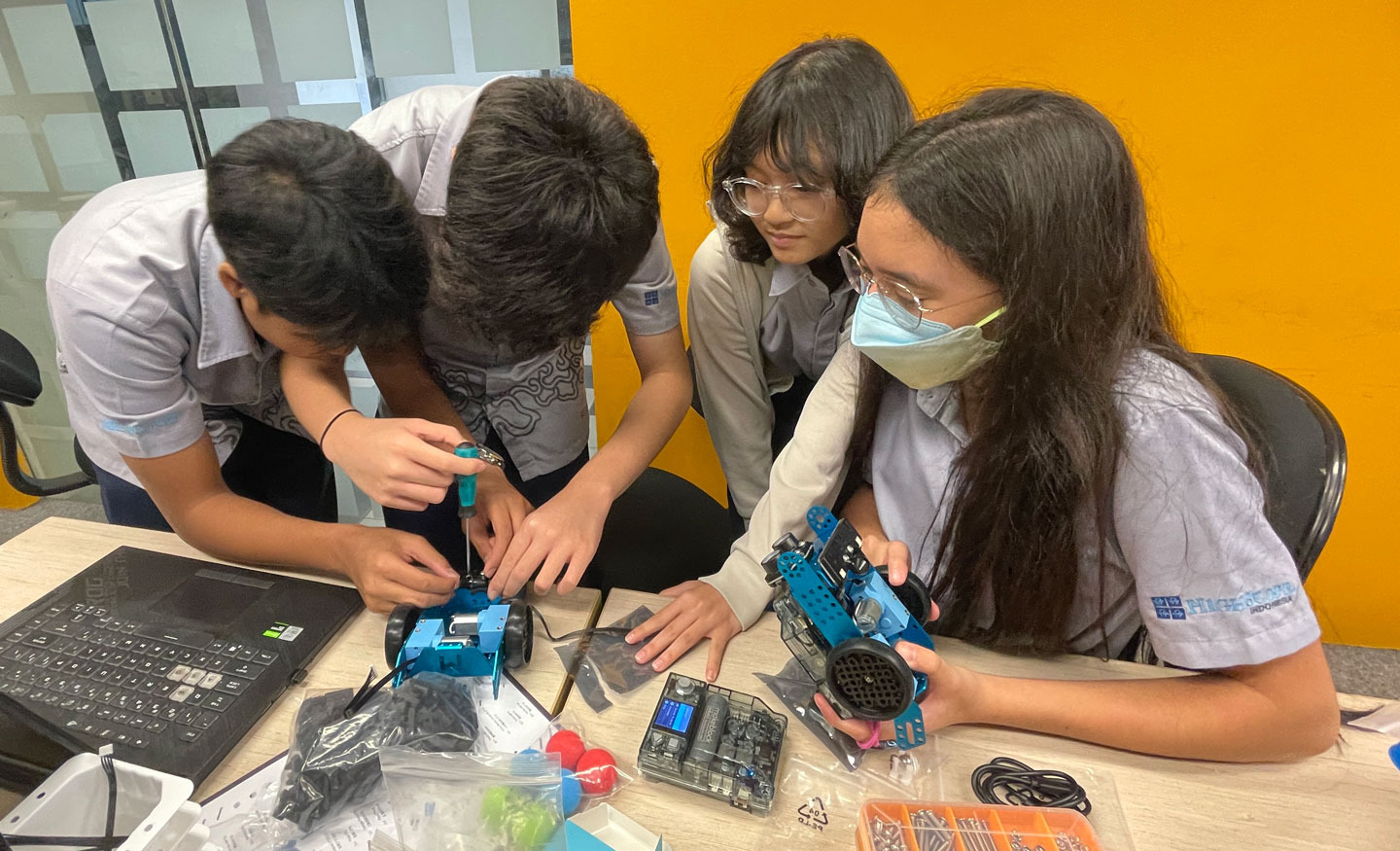Constructive Learning Philosophy Produces Quality Human Resources

Competition in today’s increasingly tight global era pushes companies to be more selective in choosing employees. Companies no longer assess human resources merely based on academic transcripts but also demand critical thinking, practical skills, and the ability to quickly adapt to the dynamics of the workplace.
It is the responsibility of educational institutions to produce graduates who are able to understand and apply theories in real-life contexts. One such institution is the Research and Development for Advancement (Redea) Institute, an educational organization with departments in Training, Research & Development, and Service Quality Monitoring & Improvement.
Through HighScope Indonesia School, the Redea Institute implements the 178 Learning Framework, built upon the philosophy of constructive learning, which encourages children to develop their own knowledge and understanding of the world through personal experiences and reflections. As an Eco-Socio-Tech–based school, HighScope Indonesia supports and facilitates its students—future leaders—to continuously face today’s and tomorrow’s challenges.
“We believe that constructivism helps students connect learning with real life, reflect on both successes and mistakes, and build their own understanding of the world,” said Antarina S.F Amir, Founder & CEO of HighScope Indonesia and Founder & CEO of Redea Institute, in a press statement.
At Redea Institute, Antarina believes that students learn best when they are intrinsically motivated.
“We encourage this by consistently applying active, student-centered learning methods supported by research, where students take an active role in their education process under the guidance of teachers,” she added.
By adopting a progressive, constructivist-based learning approach, Redea Institute continues to innovate in educational methods to design the best learning experiences for students. This ensures holistic development—academically, interpersonally, intrapersonally, physically, and in terms of global competitiveness.
Through HighScope Indonesia (SHI), Redea Institute has produced graduates who are now high-quality human resources in both national and international companies. For instance, Marcella Burhan, a 2010 graduate of HighScope Indonesia, continued her studies at the Faculty of Medicine, University of Indonesia, and later pursued a Master of Research in Genetic Medicine at Newcastle University, UK.
Marcella shared that the most useful skills during her university years were presentation skills, public speaking, time management, and logical thinking. Once she entered the workforce, leadership became crucial.
“At HighScope, we practiced leadership a lot during group discussions,” said Marcella, who is currently enrolled in the Internal Medicine Specialist Program at the University of Indonesia.
A similar sentiment was expressed by Rayesha Ikram Hardono, now a lawyer in Jakarta and a graduate of Rijksuniversiteit Groningen. According to her, the Making Good Choices method was an invaluable guide, especially as a lawyer in a fast-paced industry where she often has to handle multiple projects and cases simultaneously.
“The Making Good Choices method has been instilled in me since Grade 1 at HighScope Indonesia and has now become second nature. It is extremely useful for making decisions and solving problems,” said Rayesha, who received an LPDP scholarship for her Master’s program at Cornell Law School, USA.
Meanwhile, Edwin Piruli, a parent of three alumni from SHI TB. Simatupang, shared:
“The reason we chose HighScope Indonesia was because of their focus on Learner Outcomes, which really caught my attention. Their learning approach suits all kinds of children in personalized ways. I think the program is extraordinary. My daughters and son have many diverse friends, and what impressed me most is how the program works for different kinds of students. There is something for every child.”
The Redea Institute also notes that since its founding, HighScope Indonesia - TB Simatupang has produced many graduates accepted into various faculties at public universities in Indonesia, as well as renowned universities abroad in the United States, Canada, the UK, Scotland, the Netherlands, Australia, New Zealand, and across Asia.
Approaching its 30-year journey, the HighScope Indonesia School Network now reaches nearly 4,500 students with more than 800 trained teachers across cities including Jakarta, Tangerang, Bogor, Bekasi, Bali, Medan, Bandung, Palembang, and Bengkulu. HighScope Indonesia has also produced alumni who have pursued careers in various fields and contributed to the nation, with admissions into 351 universities across 21 countries.